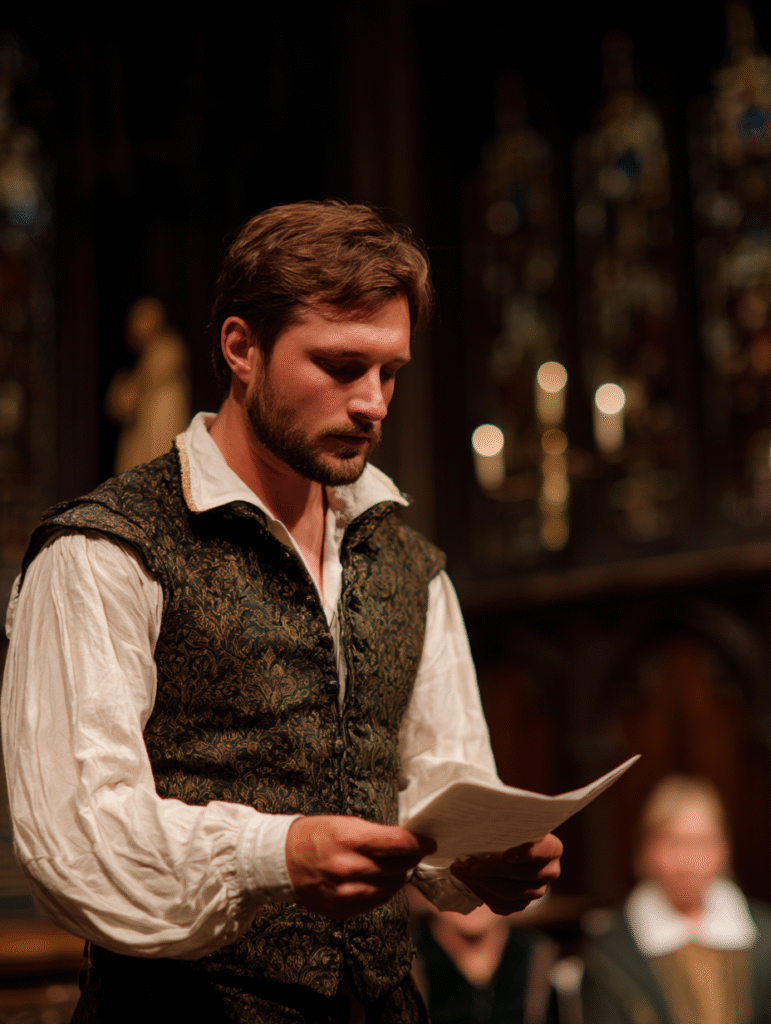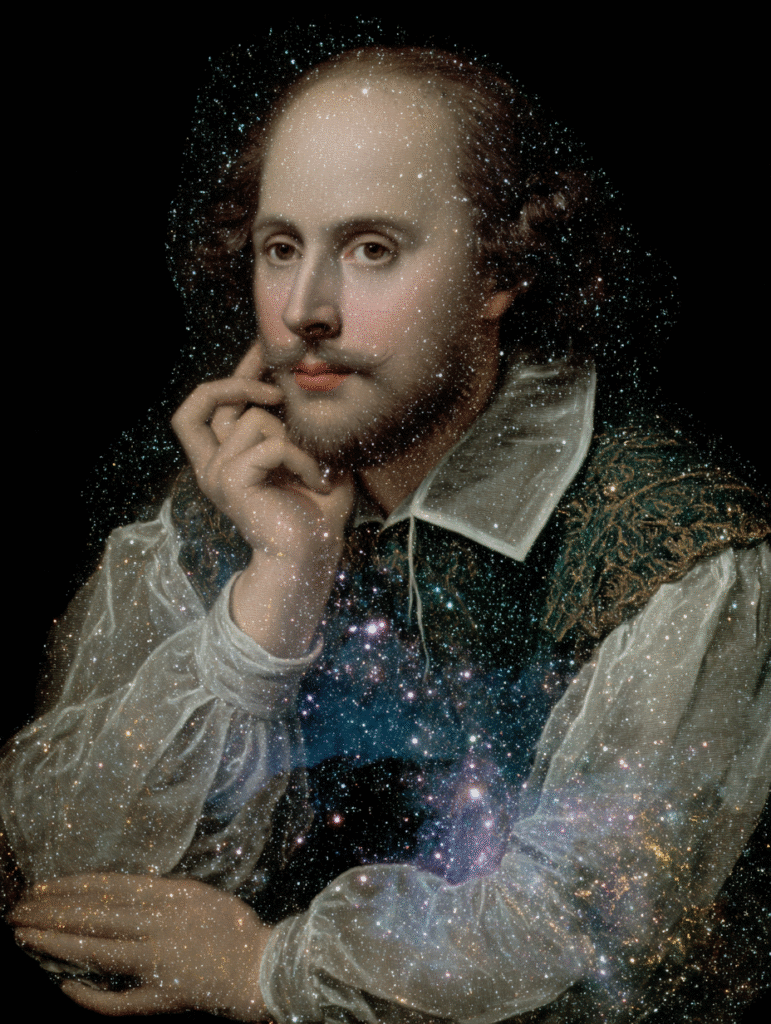
Contrary to popular belief, William Shakespeare was likely a believer who had to navigate the dangerous religious landscape of Elizabethan England. Here’s the evidence:
Family Catholic Connections
- His father John Shakespeare was fined for recusancy (refusing Protestant church attendance)
- His mother Mary Arden came from a staunchly Catholic family
- In post-1559 England, Catholicism was illegal and punishable by death
Biblical Knowledge Throughout His Works
- Over 1,200 scriptural references and biblical echoes throughout his plays
- Hamlet explores divine providence, afterlife, and moral judgment
- Measure for Measure examines Christian themes of mercy, sin, and redemption
Hidden Religious Messages
- Romeo and Juliet features a sympathetic Franciscan friar
- King Lear contains references to Catholic concepts like purgatory
- Scholars identify subtle “old faith” references hidden due to anti-Catholic laws
Public Conformity, Private Faith
- Unlike his father, Shakespeare wasn’t fined for missing Protestant services
- Maintained outward conformity while possibly concealing private beliefs
- Pragmatic survival in an era where religious non-conformity meant treason
Debunking Atheist Claims
- Early atheist theories (like William John Birch’s 1848 claims) based on forged documents
- Misinterpretation of complex, questioning faith as outright disbelief
- Religious themes “permeate” his works from Henry VIII to The Tempest
The Smoking Gun: Shakespeare’s Will (1616)

The most compelling evidence comes from Shakespeare’s final testament, where his true beliefs shine through:
The Exact Religious Language

- Full statement: “I commend my soul into the hands of God my Creator, hoping and assuredly believing through the only merits of Jesus Christ my Saviour to be made partaker of life everlasting”
- “Only merits of Jesus Christ” – Theologically specific language emphasizing salvation through Christ alone
- “Assuredly believing” – Shows confident Christian faith, not doubt or indifference
This Wasn’t Standard Boilerplate
- Typical legal formula was much shorter: “I bequeath my soul to Almighty God”
- Shakespeare chose significantly more elaborate and personal Christian language
- Added theological specificity suggests genuine conviction beyond legal requirements
Deliberate Theological Positioning
- Protestant reading: “Only merits” aligns with salvation by faith alone doctrine
- Catholic interpretation: The phrasing was also acceptable to Catholics believing in Christ’s unique role
- Strategic ambiguity: Could satisfy both traditions while avoiding persecution
What This Reveals
- Not deistic: Doesn’t mention a distant, uninvolved God
- Not agnostic: Shows certainty about Christian salvation and eternal life
- Not perfunctory: Goes far beyond what law required to make personal theological statements

Bottom Line: Shakespeare’s will wasn’t just legal paperwork—it was his final public statement about faith and eternal destiny, expressed in unmistakably Christian terms. Combined with his family background, biblical knowledge, and religious themes throughout his works, the evidence points to a man of faith navigating treacherous times, not an atheist rejecting religion entirely.
